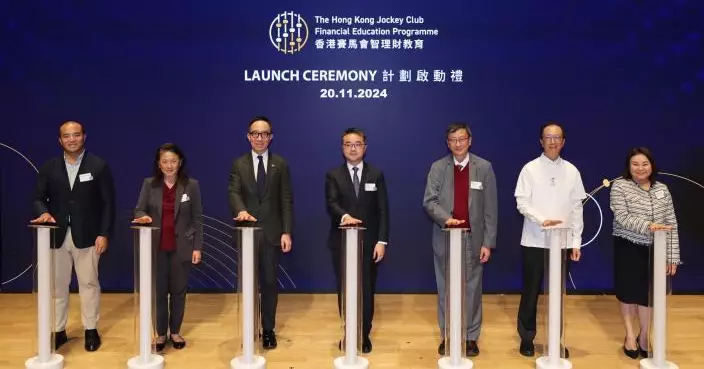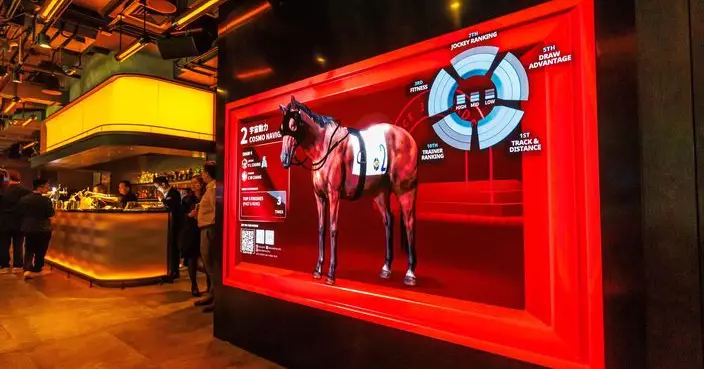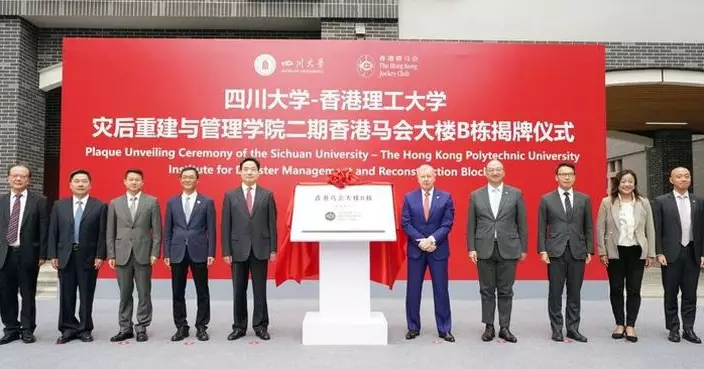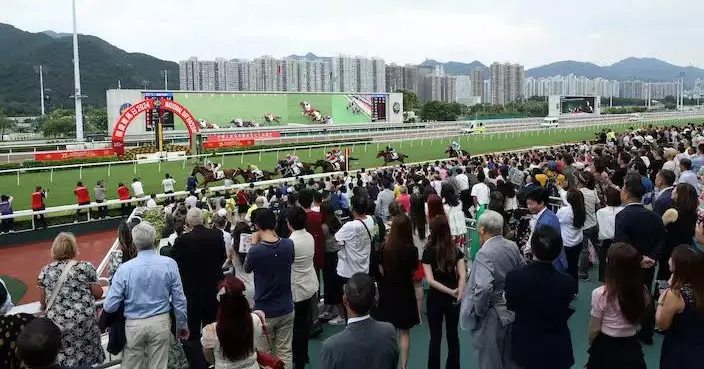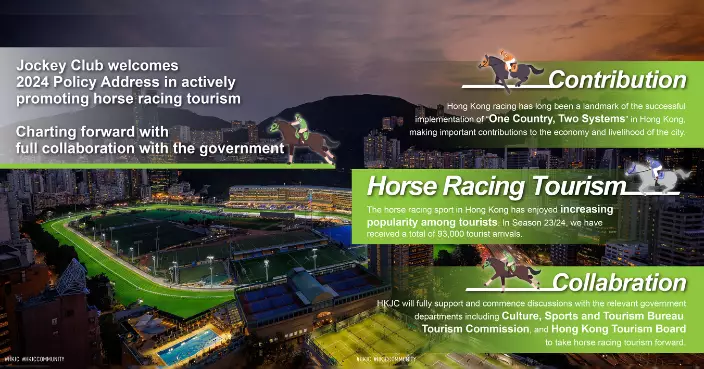Winfried Engelbrecht-Bresges, CEO of the Hong Kong Jockey Club, spoke highly of China's development in past decades and unique relationship between the Hong Kong Special Administrative Region (HKSAR) and the Chinese mainland in an exclusive interview with CGTN.
With a deep connection to both regions, he shared insights drawn from over 26 years of living in Hong Kong, complemented by an impressive record of visits to Chinese mainland, estimated to be 500-600 times.
He talked about China's rich cultural heritage, while highlighting the opportunities that exist for cultural exchange and collaboration under the "One Country, Two Systems" policy.

Hong Kong.(Getty Images)
Engelbrecht-Bresges expressed admiration for the remarkable development seen on the Chinese mainland, especially since 1998. Cities like Shenzhen have become symbols of rapid urbanization and innovation, often described as the envy of the world. The advancements in digital connectivity are particularly striking, showcasing China's ability to leap into the future of technology.
He mentioned a personal bias toward Shanghai, attributed to familial ties, noting its vibrancy and dynamism. Alongside Shanghai, he praised Beijing for its rich culture and historical significance, specifically mentioning the collaborative efforts with the Palace Museum which aim to deepen appreciation for China's storied past.
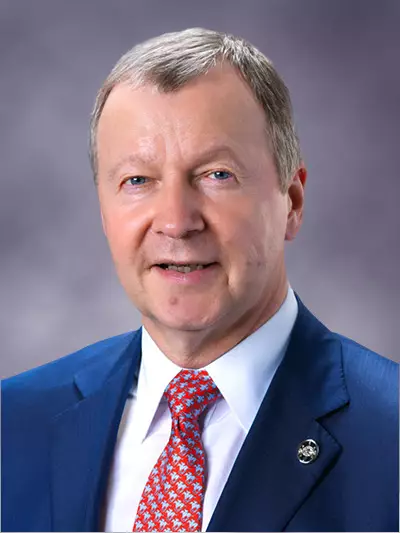
Winfried Engelbrecht-Bresges, CEO of the Hong Kong Jockey Club.
The importance of cultural exchange between Hong Kong and the Chinese mainland
In the context of Hong Kong's cultural landscape, Engelbrecht-Bresges emphasized the significance of instilling a sense of pride among Hong Kong's youth regarding their Chinese heritage.
He thought the infrastructure is important, so the Hong Kong Jockey Club Charities Trust donated HK$3.5 billion for the construction of HK Palace Museum. He also initiated various cultural programs and exchange initiatives to enhance understanding and appreciation for Chinese culture.
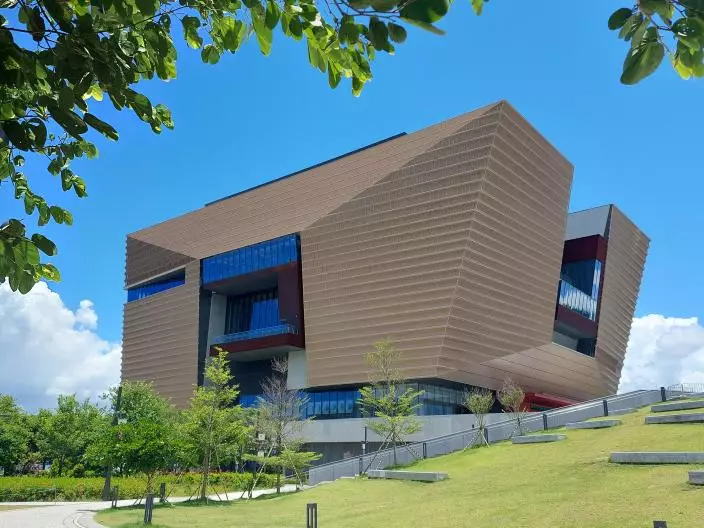
Hong Kong Palace Museum.
Despite being immersed in a culturally rich environment, he noted a surprising gap in cultural knowledge among younger Hong Kong residents. This observation fueled a commitment to fostering cross-cultural exchanges that help bridge this gap and reconnect young people with their roots.
The unique role of Hong Kong in the Greater Bay Area
Addressing the broader geopolitical landscape, Engelbrecht-Bresges reflected on the 27th anniversary of Hong Kong's return to the motherland.
He discussed the enduring resonance of the phrase "the horse racing continues and the dance continues," highlighting how local traditions and lifestyles remain robust under the "One Country, Two Systems" policy.
He described the Jockey Club's impressive rise, wherein a small region has become a global leader in horse racing. With only 0.7 percent of the world's horse population, Hong Kong is home to 9 percent of the best-trained horses, a testament to its quality and excellence in the sport.

Hong Kong.(Getty Images)
As the Greater Bay Area initiative unfolds, Engelbrecht-Bresges articulated a vision for Hong Kong as a vital economic hub and super connector that must embrace the integration opportunity.
By focusing on shared policies and mutual development, Hong Kong can extend its influence in various sectors, including technology, philanthropy, and education.
He envisions a future where Hong Kong continues to thrive as a dynamic, competitive city, harnessing its past while looking forward to global leadership. He added that what Hong Kong impressed him most is the Can-do Spirit, result-orientation, and overcoming difficulties.
The Hong Kong Academy of Medicine (HKAM) has received approval from The Hong Kong Jockey Club Charities Trust to donate HK$49.6 million to establish the Jockey Club Institute for Medical Education and Development (JCIMED), and support a five-year training program. The Institute was officially established on 1 November 2024 to strengthen the development of postgraduate medical education.
The HKAM held the inauguration ceremony of the Jockey Club Institute for Medical Education and Development today (27 November 2024). Officiating at the ceremony were Ms. ImeldaChan, Head of Charities (Positive Ageing & Elderly Care, and Healthy Community) of The Hong Kong Jockey Club, Professor Gilberto Leung, President of the Hong Kong Academy of Medicine, Professor Philip Li, Vice-President (Education and Examinations) of the Hong KongAcademy of Medicine, and Dr Benny Cheng, Honorary Director of the Jockey Club Institute forMedical Education and Development. The presence of these guests not only demonstrates the importance attached to the development of medical education, but also shows the common vision of all walks of life to improve the quality of medical education.
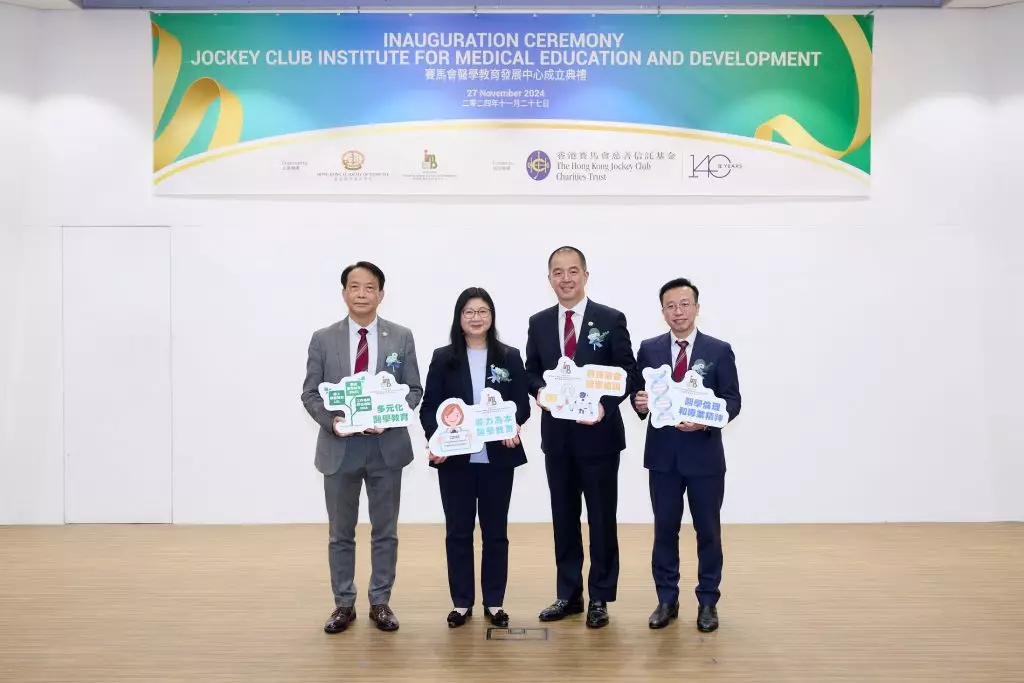
4 Officiating Guests: Ms. Imelda Chan, Head of Charities (Positive Ageing & Elderly Care, and Healthy Community) of The Hong Kong Jockey Club (2nd from left), Prof. Gilberto Leung,President of the HKAM (2nd from right), Prof. Philip Li, Vice-President (Education and Examinations) of the HKAM (1st from left), and Dr. Benny Cheng, Honorary Director of the JCIMED (1st from right) attended inauguration ceremony of JCIMED.
The HKAM has been committed to promoting the development of postgraduate medical education and continuing medical education. On the occasion of its 30th anniversary in 2023, the Academy held a tripartite medical education conference with two local medical schools early last year, followed by the Strategic Planning Retreat on Education and Training 2023, and published the " Hong Kong Academy of Medicine- Position Paper on Postgraduate Medical Education 2023" (link) in September 2023. This document confirms the HKAM's unwavering commitment to strengthening medical education by seizing new opportunities and adapting to changes in the profession. The position paper sets out 10 key recommendations, including promoting specialist training, implementing competency-based medical education (CBME), promoting lifelong learning, innovating continuing medical education, improving teaching skills, and implementing quality assurance, which aims to improve the quality and effectiveness of medical education across the board.
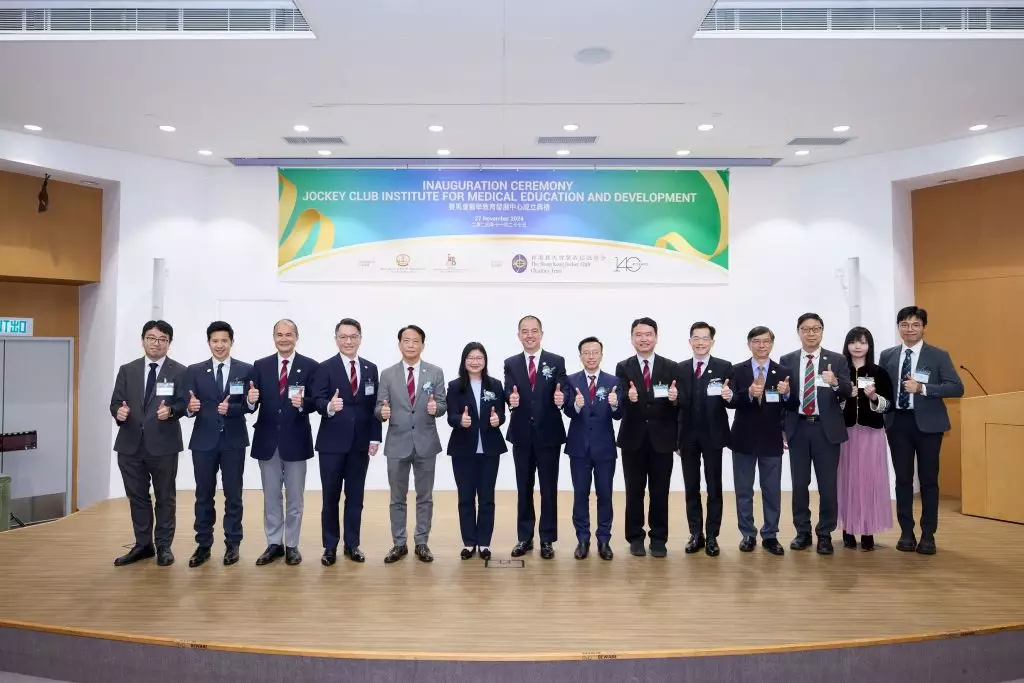
The guests took a group photo at the JCIMED Inauguration Ceremony marks a new milestone in medical education for the Academy.
The recommendations in the Position Paper are also the blueprint for the establishment of the Jockey Club Institute for Medical Education and Development, which aims to enhance the standard of medical education and specialist training in Hong Kong, with a focus on building capacity and enhancing quality of medical education to better meet the demand for medical professionals in society. Based on the recommendations of the Position Paper, the JCIMED hasset out the following four new directions:
1. Competency-based Medical Education (CBME): Focuses on equipping specialist trainers and trainees with the principles and skills of continuing workplace-based assessment, providing professional knowledge and resources for effective implementation to ensure the quality and effectiveness of medical education.
The competency-based model, which emphasizes the acquisition of specific competencies rather than the completion of fixed-time training, incorporates continuous assessment and feedback that provides participants with timely suggestions for progress and improvement, and promotes continuous learning and development.
2. Faculty Development: Enhance teaching skills, foster a culture of continuous improvement in medical education, and facilitate experience exchange and professional development among trainers.
3. Continuing Medical Education/Continuous Professional Development (CME/CPD):Practicing a modern approach to lifelong learning for healthcare professionals to ensure that healthcare professionals are able to continuously update their professional knowledge and skills.
4. Quality Assurance: Implement robust systems to maintain high standards in medical education, ensuring that all training courses and activities meet the high standards.
In 2013, the Hong Kong Jockey Club Charities Trust approved a donation of over HK$53 million to set up the Hong Kong Jockey Club Innovative Learning Centre for Medicine, which enabled local medical professionals and medical students to enhance their medical skills and quality through various situational training and surgical simulations, providing simulation training to more than 30,000 healthcare professionals. The Hong Kong Jockey Club Charities Trust hasonce again allocated $49.6 million to renovate the facilities of the existing Centre and renamed it to the Jockey Club Institute for Medical Education and Development (JCIMED). In response to the development of medical technology, JCIMED will also introduce extended reality (XR), artificial intelligence (AI), and other innovative technologies to provide trainees with a more comprehensive and interactive learning experience, and is expected to train more than 4,800 doctors to diagnose, evaluate and analyze patient data. JCIMED will develop training courses to implement CBME, faculty development, and modernise CME/CPD, strengthen research and innovative teaching methods in medical education, with the aim of promoting local medical education and specialist training, and improving the overall quality of medical services in HongKong and the Greater Bay Area.
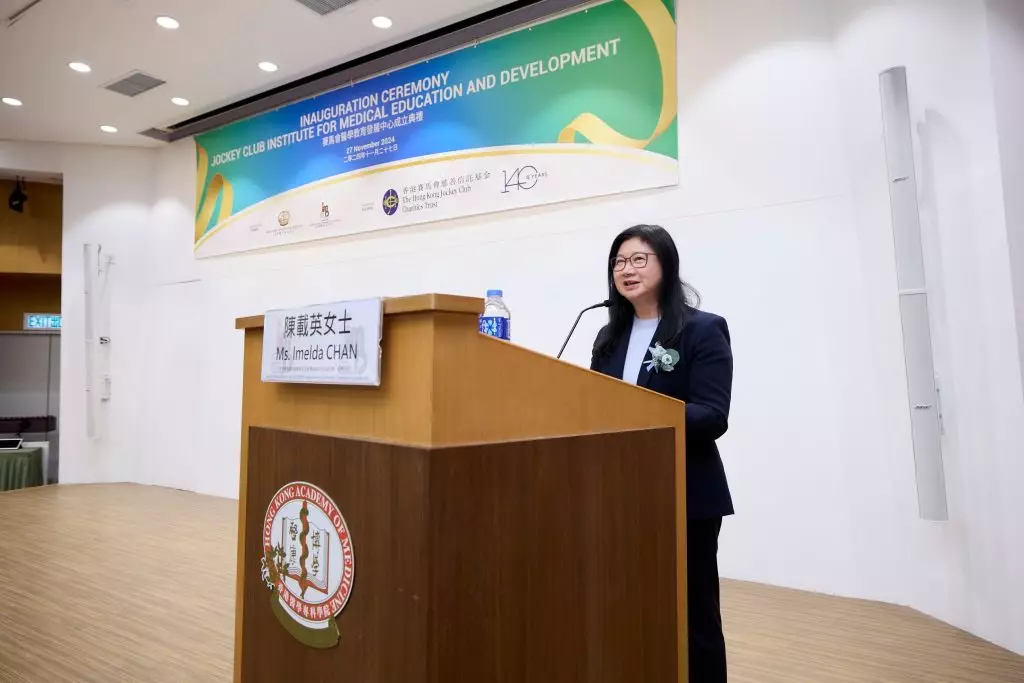
Ms. Imelda Chan said the establishment of the JCIMED and its related training programs will help respond to the growing demand for specialist training, further enhance the quality of healthcare services in Hong Kong, and enhance the professionalism of healthcare professionals in Hong Kong and the Greater BayArea through enhanced exchanges with the Mainland.
Ms. Imelda Chan, Head of Charities (Positive Ageing & Elderly Care; and Healthy Community) at the Hong Kong Jockey Club, said, "With the changing times and technological advancements, the equipment used in training needs to be updated to keep pace with the development of healthcare services and society. We believe that the establishment of the Jockey Club Institute for Medical Education and Development and its related training programs will help respond to the growing demand for specialist training, further enhance the quality of healthcare services in Hong Kong, and enhance the professionalism of healthcare professionals in Hong Kong and the Greater Bay Area through enhanced exchanges with the Mainland."










